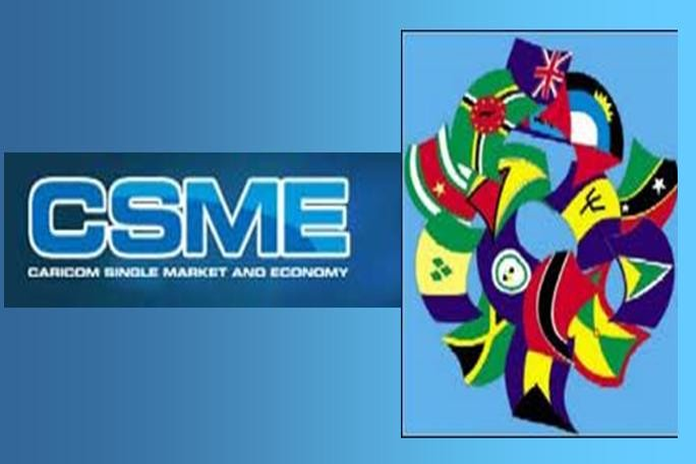By Elaine Hartman Reckord
KINGSTON, Jamaica, (JIS) – Jamaica is participating in consultations on the implementation of various aspects of the CARICOM Single Market and Economy (CSME). The CSME was established to deepen regional integration, drive sustained economic development and build economic resilience within the Caribbean Community.
Speaking at a recent Jamaica Information Service (JIS) Think Tank, held at the agency’s television department in Kingston, minister of foreign affairs and foreign tTrade, senator Kamina Johnson Smith, emphasised the technical efforts required for the process.
“There’s a lot of technical work involved. The process requires a lot of technical work for this to happen – far more than many might expect,” she said.
The CSME comprises several key components, including the free movement of goods that meet the rules of community origin without unauthorised barriers, the free movement of nationals across 12 categories without the need for work permits or visas and the right of CARICOM nationals to establish businesses in member states.
Senator Johnson Smith explained that the economic aspects, such as financial and monetary integration among member states, are advanced through meetings of the Council for Finance and Planning (COFAP).
Meanwhile, regional health and social matters are addressed by the Council for Human and Social Development (COHSOD) and legal matters are handled by the Senior Officials of the Legal Affairs Committee (SOLAC).
“And they all deal with different aspects. Jamaica is represented at all levels. We have been full proponent of full free movement within the region, which is a matter that is coming to fruition,” she said.
At the last heads of government conference, she said it was agreed that a three-year transitional period would be implemented to facilitate the necessary technical arrangements. “Jamaica will be a part of that.”
Minister Johnson Smith said that during the transition to free movement, existing mechanisms, such as the CARICOM Skills Certificate regime, will remain in effect.
This means that individuals seeking employment in other member states will still need to apply for a CARICOM Skills Certificate. However, she noted that efforts are under-way to streamline and enhance the process, making it easier and more efficient for people to move and work easily.
“We’re also examining the subsidiary rights and matters that come with movement of your tools of trade, movement of your right to free primary and secondary education and access to primary and emergency healthcare. These are elements that have been agreed on by heads of government as integral to full free movement,” the minister added.
In support of these efforts, National CSME consultations were recently held at the ministry of foreign affairs and foreign trade in Kingston.
The sessions, which were hosted in collaboration with officials from the CARICOM Secretariat, included participation from 36 stakeholders representing various ministries, department and agencies.
Discussions focused on Jamaica’s progress in fulfilling its CSME obligation, identifying current challenges and exploring areas where collaboration and technical support could accelerate regional integration.
The CSME was established under the Revised Treaty of Chaguaramas in 2001 and seeks to create a single economic space allowing for the free movement of goods, services, capital, people, and the right of establishment.





